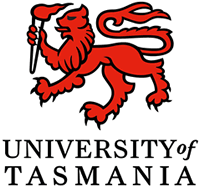About the Project
Sea level rise originating from Antarctica is difficult to quantify (Church et al., 2013). Ice-ocean interaction at the base of ice shelves, such as basal melting, is critically important for determining the Antarctic contribution to sea level rise. Numerical ocean models present an ideal tool for investigating this interaction. Model runs are typically forecast or hindcast solutions for modelling realistic ice shelves or idealised process-oriented studies.
An under-explored option is inverse models. Variational methods allow the assimilation of observations and exploration of model sensitivities. The Regional Ocean Modelling System is a commonly used numerical ocean model, has been modified for ice shelf interaction (Galton-Fenzi et al., 2012), includes an inverse model (Shchepetkin and McWilliams, 2005). Using a newly-developed extension to the inverse modelling framework, the successful applicant will apply inverse methods to ice shelf-ocean interaction; initially focussing on sensitivity of cross-shelf exchange of oceanic heat to uncertainties in the primary forcings.
The successful applicant will ideally have inverse modelling experience and/or a background in mathematics/physics.
The other advisors on this project will be David Gwyther (IMAS) and Dr Terry O’Kane (CSIRO)
This project is supported by the Australian Research Council (ARC) Special Research Initiative for Antarctic Gateway Partnership. For information about the Antarctic Gateway Partnership visit the Institute for Marine and Antarctic Studies (IMAS) web page.
Funding Notes
The ARC Antarctic Gateway Partnership is seeking applications from suitably qualified graduates for living allowance Scholarships to undertake PhD projects.
The UTAS Graduate Research Office provides detailed information about scholarships including eligibility, award conditions and application processes.
To be considered for an ARC Antarctic Gateway Partnership living allowance Scholarship it is necessary to specify this on the Admissions and Scholarship Application Part 9.1.
Tuition fees apply to all international candidates. Limited numbers of UTAS tuition fee scholarships are also available on a competitive basis to candidates undertaking projects closely aligned with the ARC Antarctic Gateway Partnership's research objectives.
References
Church, J.A., P.U. Clark, A. Cazenave, J.M. Gregory, S. Jevrejeva, A. Levermann, M.A. Merrifield, et al. 2013. "Sea Level Change." In Climate Change 2013: The Physical Science Basis. Contribution of Working Group I to the Fifth Assessment Report of the Intergovernmental Panel on Climate Change, edited by T.F. Stocker, D. Qin, G.-K. Plattner, M. Tignor, S.K. Allen, J. Boschung, A. Nauels, Y. Xia, V. Bex, and P.M. Midgley, 1137–1216. Cambridge University Press, Cambridge, United Kingdom and New York, NY, USA. doi:10.1017/CB09781107415315.026.
Galton-Fenzi, B. K., J. R. Hunter, R. Coleman, S. J. Marsland, and R. C. Warner. 2012. "Modeling the Basal Melting and Marine Ice Accretion of the Amery Ice Shelf." Journal of Geophysical Research 117: C09031. doi:10.1029/2012JC008214.
Shchepetkin, Alexander F., and James C. McWilliams. 2005. "The Regional Oceanic Modeling System (ROMS): A Split-Explicit, Free-Surface, Topography-Following-Coordinate Oceanic Model." Ocean Modelling 9 (4): 347–404. doi:10.1016/j.ocemod.2004.08.002.

 Continue with Facebook
Continue with Facebook

